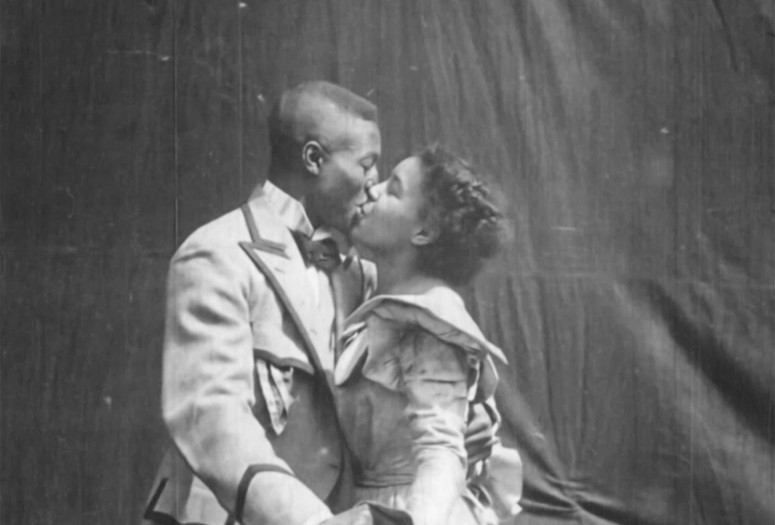
In this annual celebration of the NYU Orphan Film Symposium, Barbara Hammer presents some of her earliest Super 8 works, which heralded one of Queer Cinema’s most radical and questioning artists: the abstract Contribution to Light (1968), her psychodrama Death of a Marriage (1968), and Aldebaran Sees (1969). This Martin Luther King Day program also presents rarities of African American cinema. The program opens with what scholar Allyson Field calls “the earliest depiction of black intimacy on film”: Something Good—Negro Kiss (Selig Polyscope Co., 1898), a burlesque of Edison's John C. Rice-May Irwin Kiss (1896), starring the black performers Saint Suttle and Gertie Brown, newly preserved by the University of Southern California Hugh M. Hefner Moving Image Archive. The Orphans program also includes Ina Archer presenting Cab Calloway’s home movies, early television kinescopes, and vernacular films from the Washington, DC, community, all newly preserved by the National Museum of African American History and Culture; a rare 1966 TV newsfilm of Martin Luther King Jr. on voting, from the University of South Carolina; and Nikolai Ursin’s remarkably candid 1967 portrait of an African American trans woman, Behind Every Good Man . . . , a 16mm preservation through the Outfest UCLA Legacy Project.
Program approximately 120 min.